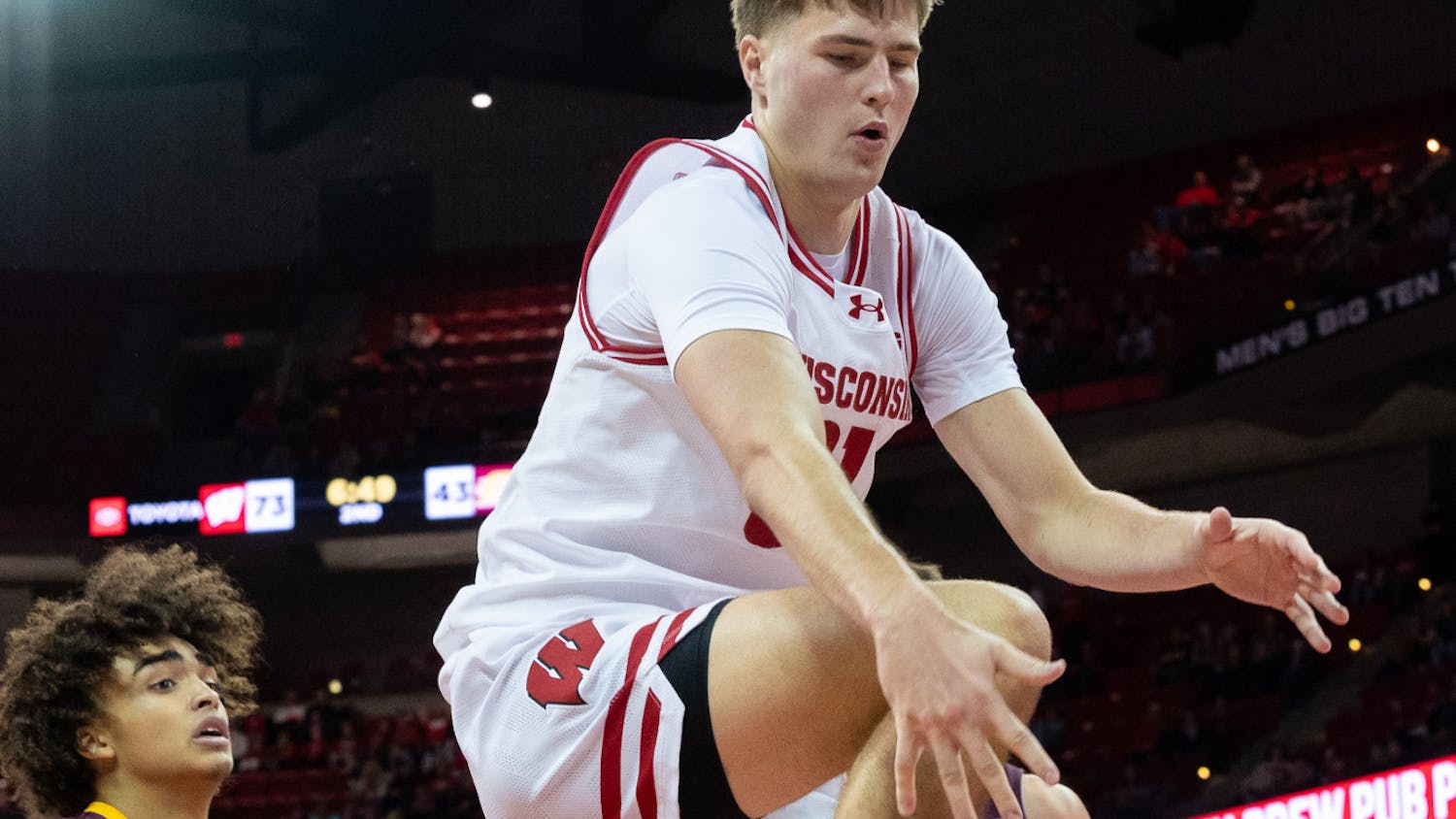When a native Wisconsinite attended the University of Wisconsin-Madison on the Bucky Tuition Promise Scholarship in 2022, she thought the university would provide not only her tuition, but also for her basic needs.
Grace, the junior at UW-Madison whom The Daily Cardinal is identifying by a pseudonym due to privacy concerns, soon discovered, however, that her scholarship only afforded her the Go10 meal plan which provides 10 meal swipes a week.
If she wanted to eat three meals a day, this left 11 meals a week unaccounted for, despite what she thought Bucky promised.
Grace would often skip meals, eat only two meals a day or eat low-quality meals which lacked nutrition. Her diet became synonymous with the typical college student diet, a stereotype which Grace thinks brushes off systemic issues of food insecurity.
And things only became more dire when the dining halls closed over winter break. The only grocery stores close to campus are Fresh Market, Trader Joe’s and Capitol Center Market, which are unaffordable for low income students. Junior Joy Rasch said the only resource she was given was the house fellow’s phone number in case of emergencies.
Frustrated with her experience and a lack of university aid, Grace began an Associated Students of Madison intern project to expand food resources for students staying on campus over winter break. Since then, her project has expanded to include a Basic Needs Student Support website with a page dedicated to Winter Break Support.
“Unfortunately, federal regulations restrict us from considering periods of time when students aren’t enrolled, like winter break, in determining financial aid,” Assistant Director of Media Relations Greg Bump said in an email to The Daily Cardinal Wednesday.
A working group of campus partners began meeting regularly in the spring of last year to find solutions and support students in meeting their basic needs, including combating food insecurity, according to Bump.
Some of these partners include ASM, student-run food insecurity organizations and an array of University offices like housing, health services and the Multicultural Student Center.
Since last year, UW-Madison has expanded student awareness of the Frozen Meals Program in which unused dining hall food is packaged into frozen meals for students to take.
Students can pick up free reheatable meals from the University Housing throughout the break as well as free loaner microwaves. This winter break, 15 students took advantage of those free meals, with a total of 40 meals given out, according to Bump.
They have also increased informational access to food pantry resources and community meal services by promoting the website on social media and eNewsletters. The website includes a map as well as accurate time information which junior Ashley Hagen said would’ve taken the burden off of her.
“That kind of research involves individually calling each place, which takes a lot of time and energy that I wouldn’t have to spend,” Hagen said.
Approximately 31% of UW-Madison students reported suffering from food insecurity in 2024, according to a Basic Needs survey with 760 respondents which was independently conducted by UW-Madison student government leaders.
Furthermore, 50% of non-white students reported skipping a meal at least once a month for financial reasons, compared to 38% of all students.
Many students who experience food insecurity may not even realize it.
“A lot of people look at food insecurity as just starving and being hungry, but that’s not the reality for a lot of people,” Rasch said. “It’s choosing to buy gas over getting a meal or going out to eat but not getting anything and saying that you ate before.”
Being a low income student also can make it harder to find community in the “typical college experience,” according to Grace.
“When you think about your college experience, it's about going out to eat with friends and going out for drinks and doing all these things that are very, very expensive,” Grace said. “For a lot of students who have experienced financial struggles or food insecurity that's just not their college experience — it can feel very isolating.”
For Grace, freshman year was the worst.
“I struggled a lot more with my academics and finding community as well as stress and anxiety around my basic needs,” she said.
For many students experiencing food insecurity at college, it isn’t the first time.
Grace experienced food insecurity at multiple points in her life prior to college. When she lived with her mom as a child, they received Supplemental Nutrition Assistance Program (SNAP) benefits. “That was part of growing up,” Grace said.
Only a third of the students who are eligible for SNAP will ever apply. The problem is not a lack of resources, but rather a lack of access to those resources and information about them, according to Grace.
“Some people are shocked to find out that they qualify when they’ve been struggling for months,” Rasch said.
More still needs to be done, students said.
Grace wants the university to provide more institutional, financial and administrative support to the overburdened — often student-led — programs that already exist, instead of adding more programs.
The free meal cards handed out by the Office of Student Assistance and Support have been in low supply at the Multicultural Center and University Health Services, according to Grace.
“As far as our knowledge, meal cards haven’t run out. If at any time a department such as MSC and UHS needs more cards, they connect with the Office of Student Assistance and Support,” Bump said.
Because the problem is not always very visible, campus officials “are sometimes unwilling to see that there is a housing or food insecurity problem on campus,” Grace said.
“There are stereotypes around college students eating ramen or couchsurfing, so I think that is part of the overall unwillingness to address it,” she said.
Mary Bosch is the college news editor and photo editor emeritus for The Daily Cardinal. She is a second year journalism and sociology student with a focus in data. Follow her on twitter: @Mary_Bosch6






